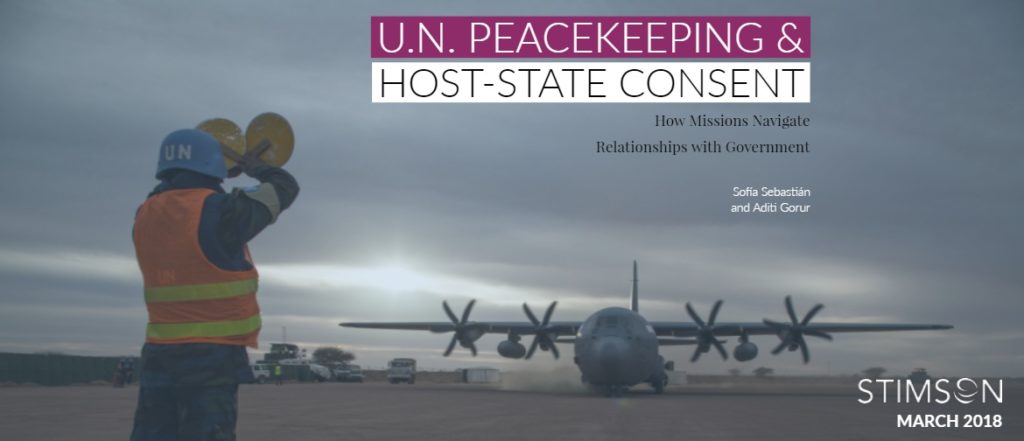A fundamental principle of United Nations (U.N.) peacekeeping is that missions deploy only with the consent of the main parties to a conflict, including the host-state government. In practice, however, the absence of genuine host-state consent represents one of the greatest threats to the success of modern peacekeeping missions.
Without the strong consent of the host-state government, peacekeeping missions will struggle to achieve their mandates, play a strong role in political negotiations, uphold the safety and security of peacekeepers, or plan a strategic exit. Yet if the right steps are taken by the U.N. Security Council, other influential member states, the U.N. Secretariat, and peacekeeping mission leaders, these serious risks can be contained.
This report explores how missions have navigated host-state consent in the past in order to draw lessons to better manage consent in the future. It offers recommendations for how U.N. stakeholders can act to promote strong host-state consent before the mission deploys, in the initial months following the mission’s deployment, and after consent begins to deteriorate.

